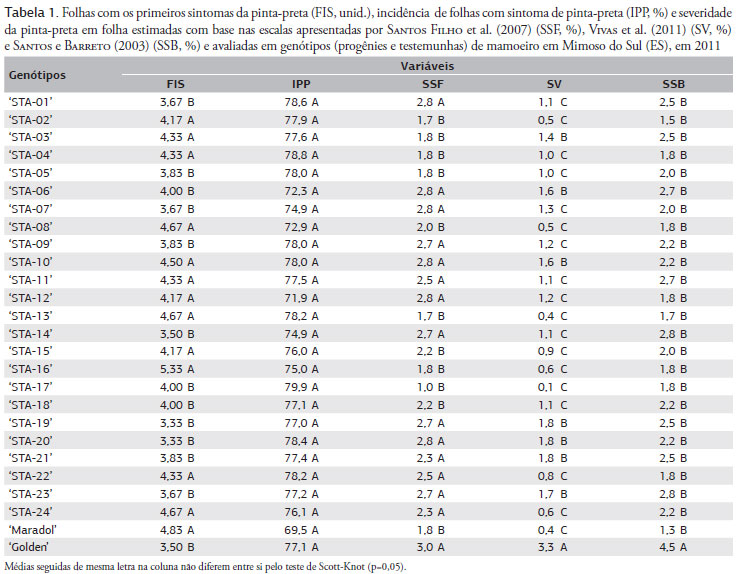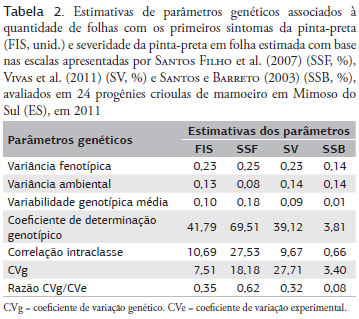Genetic resistance is a sustainable alternative to control diseases in crops, being indispensable the enlargement of the genetic base to introduce new resistance genes on developing cultivars. This study reports the phenotypic evaluation of 24 papaya progenies, originated of landraces cultivated for small farmers in south of the Espírito Santo State, Brazil. Characteristics related to the resistance to black-spot disease, induced by the fungi Asperisporium caricae were evaluated. For comparison one genotype resistant ('Maradol') and one susceptible ('Golden') to black-spot disease were included on the study. Based on the genetic parameters estimated, the studied population has genetic variability for resistance to black spot diseases appropriates for use of recurrent selection as crop breeding method.
Asperisporium caricae; Carica papaya; genetic resistance; genetic variability; herdability


